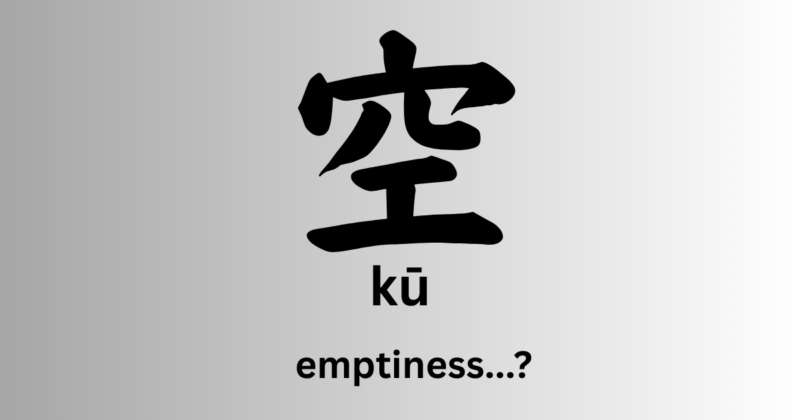
The character 空 is pronounced kū. It is often translated as “emptiness” in English, which means the state of being empty, or there being nothing. But giving such an interpretation to kū misses what the word is meant to point to.
To explain, it is important to recognize that language (i.e., concepts) functions in a way that makes it feel like the content of concepts actually exists. In this case, as if there is such a thing as emptiness.
Though “empty,” language makes “emptiness” into something. It is the same with mu (“nothingness”). A conceptual understanding makes nothingness—which is supposed to be nothing—into something called “nothingness.”
To know what kū, or “emptiness,” is actually expressing, I’d like you to try this experiment. Please actually do it. First, say “good morning.” And now, say “hello.” Doing this, it’s clear that “good morning” is “good morning.” And when there’s “hello,” there’s “hello.” When there’s “hello,” “good morning” is gone. In this way, it is always the way the content of now is. Hola.
The word “emptiness” is used to express this fact. Saying “good evening,” it’s the way it is. And nothing of it lingers or remains. It is always the way it is now. The content of now is so free that it can be anything. I think you may also notice that there is nothing to cling to or be attached to.
And if you truly want to know what I’m pointing to here, do join us at our zazenkai. You are always welcome.
(You can read more on our montly newsletter! See here to view the archive and/or subscribe)